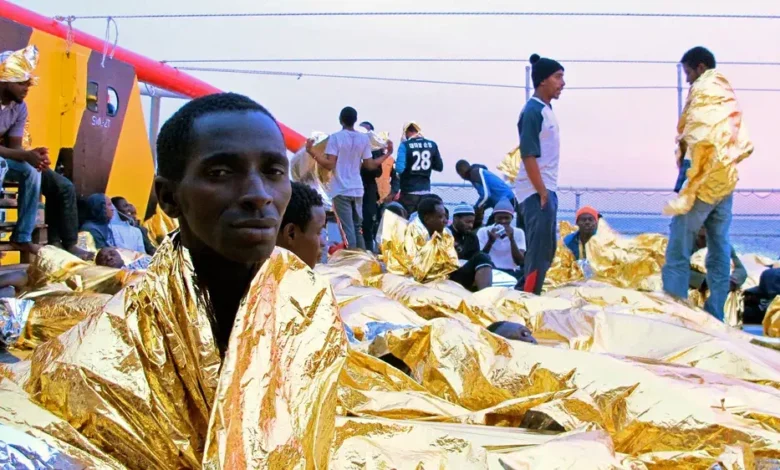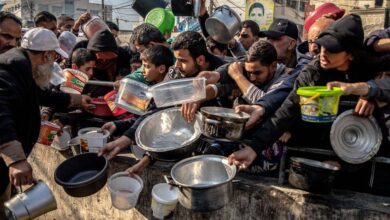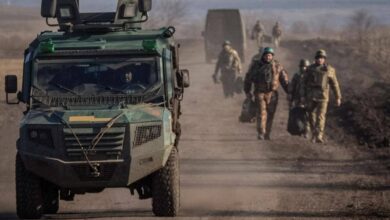
When Hassan Ali plunged into the frigid waters of the Mediterranean, his mind was filled with thoughts of his two small children: their smiles, hugs, and dreams for the future. In that moment of despair, he remembered others from his small village in Pakistan’s Punjab province who had also set off on similar journeys and wondered if they too had faced their final moments in the dark depths, thinking of home.
Speaking from a borrowed phone at Malakasa, a refugee camp near Athens, Hassan-who does not know how to swim-feared he was going to drown. Just when all hope seemed lost, a rope was thrown from a nearby merchant navy ship. “I held onto it with my life,” he recounted.
Hassan was the first to be rescued on December 14, early in the morning, near the Greek island of Crete. In the next two days, a big rescue operation took place with nine vessels, including the Greek coastguard and helicopters, bringing more survivors aboard. The tragedy indeed involved loss as Greek authorities confirmed at least five deaths among over 200 survivors after multiple capsizing incidents near Gavdos and the Peloponnese.
The toll on families was devastating. Pakistan’s foreign ministry reported the recovery of five Pakistani nationals’ bodies, with at least 47 rescued and 35 still unaccounted for.
Hassan’s odyssey began three and a half months ago when he left his family in Gujrat, Pakistan. He was 23, the third of five siblings, earning a meager income as a steel fixer-42,000 rupees ($150) a month for grueling 10 to 12 hour days. Despite his hard work, rising living costs made it increasingly difficult to sustain his family.
“My electricity bill was often between 15,000 and 18,000 rupees ($54-$64) monthly,” he shared, adding that groceries for his family consumed a similar amount. Often forced into debt just to make ends meet, he worried about unforeseen emergencies.
“In Pakistan, it’s impossible to live with dignity on such earnings,” he explained, compelling him to take drastic measures. After discussions with his family, they sold a small plot of land and his mother’s jewelry to fund his journey, raising nearly two million rupees ($7,100) to pay an agent promising safe passage to Europe.
It was in Libya that the journey became a nightmare. Promised a boat to Italy, Hassan was instead confined to a warehouse with more than 100 other men, most from Pakistan. The smugglers took their belongings, and they were helpless and afraid.
Nous ne recevions qu’une tranche de pain tous les jours,” he narrated, explaining how guards had meted out brutal treatment for trying to maintain silence with brutality. “Any complaints of food and begging for needs were met with ruthless beatings.”
As days passed into a month, matters turned from bad to worse. The guards informed the men that instead of Greece, they would be taken to Italy. In as short as 30 minutes, they were asked to prepare themselves.
Hassan, who had never seen the ocean, was consumed with fear. “I begged to be sent back to Pakistan, but I was told, ‘There is no going back. Either go forward or die,'” he said. More than 80 men were packed onto a rickety boat meant to hold far fewer passengers.
The crossing began under stormy skies. As waves crashed and engines failed, panic set in. “Everyone began praying,” Hassan remembered, believing they were moments away from death. After 40 harrowing hours, the boat capsized, plunging him into the icy depths.
As he struggled to stay afloat, a miracle came: Hassan caught hold of a rescue rope thrown by a passing ship. Once aboard, he collapsed in relief, thankful for his survival.
Hassan’s story is emblematic of a broader crisis. Cities like Gujrat, Sialkot, and Mandi Bahauddin have become hotspots for individuals seeking a better life in Europe. With land routes increasingly restricted, many resort to perilous sea crossings. According to the UNHCR, over 190,000 migrants arrived in Europe this year, with the majority taking the dangerous sea route.
This year, close to 3,000 Pakistanis made the perilous voyage to Europe, compared to over 8,000 last year. The Mediterranean continues to be one of the deadliest routes for migration, with over 3,100 lives lost to drowning in 2023 alone.
Now living in Malakasa with fellow survivors, including some from previous tragedies, Hassan is cautiously optimistic about finding work to support his family back home. He speaks to them daily when he can borrow a phone.
His message to those considering a similar journey is stark: “After what we have experienced, I implore people to never, ever take this route. It is not worth the risk.”



